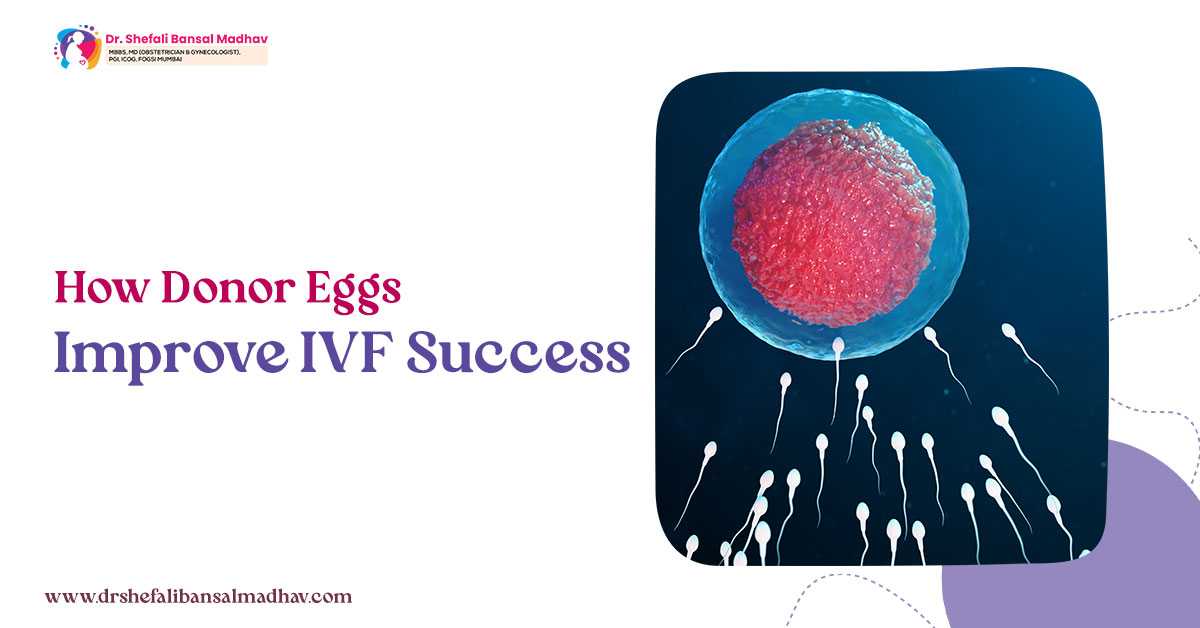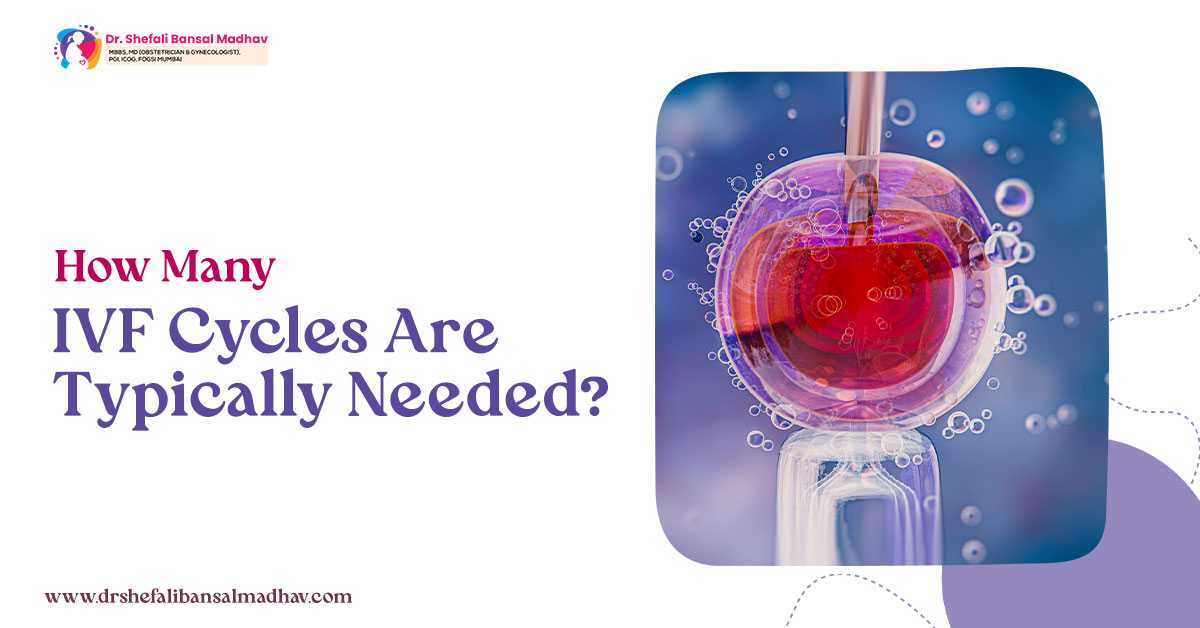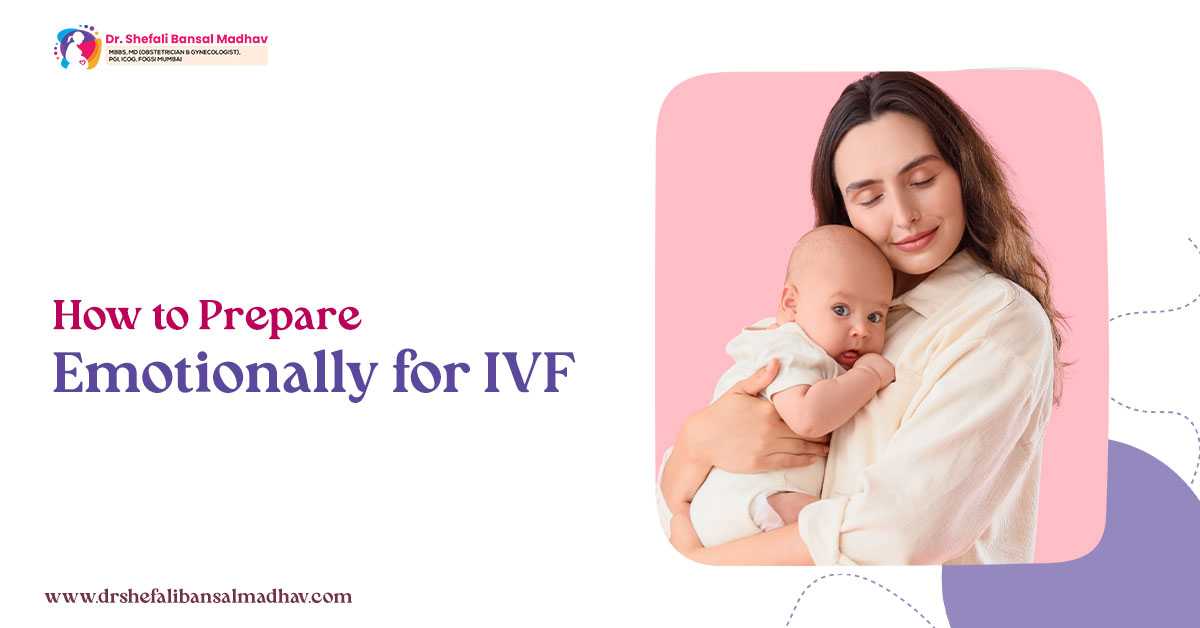For women with PCOS, the journey to conception often involves unique challenges that require specialized care. PCOS affects hormonal balance, ovulation, and egg quality, making conception more difficult. In such cases, consulting an infertility specialist in Siliguri can help women understand how IVF treatment can be customized to their specific needs, increasing the chances of a successful pregnancy.
IVF for women with PCOS requires a careful, personalized approach that considers both medical and emotional factors, ensuring the best possible outcomes.
Understanding PCOS and Its Impact on Fertility
PCOS is a condition that affects hormone levels, often leading to irregular menstrual cycles, excess androgens (male hormones), and the development of small cysts on the ovaries. These imbalances can interfere with normal ovulation, making natural conception more difficult.
Women with PCOS may experience:
- Irregular or absent periods
- Difficulty getting pregnant despite trying for months or years
- Insulin resistance or weight management challenges
- Symptoms like acne, excessive hair growth, or thinning hair
Because PCOS affects multiple aspects of fertility, IVF protocols for these women are often adjusted to account for these challenges and reduce potential complications.
How IVF Works Differently for Women with PCOS?
IVF for women with PCOS generally follows the same steps as regular IVF: stimulating the ovaries, retrieving eggs, fertilizing them in a lab, and transferring embryos. However, doctors make certain adjustments to make the process safer and increase the chances of success.
1. Gentle Ovarian Stimulation
Women with PCOS often produce many eggs in response to fertility medications, which can sometimes cause discomfort or a condition called ovarian hyperstimulation syndrome (OHSS). Symptoms can include bloating, abdominal pain, or nausea. To prevent this, doctors use lower doses of medication and check the ovaries closely with ultrasounds and blood tests. The goal is to get enough healthy eggs without causing problems.
2. Preventing Premature Ovulation
Doctors often use a method called the GnRH antagonist protocol. This involves giving medication that stops the eggs from being released too early. By controlling the timing, specialists can plan egg retrieval carefully, reducing risks and improving the chances of healthy embryos.
3. Freezing Embryos First
Sometimes, all fertilized embryos are frozen instead of being transferred immediately. This is called a freeze-all approach. Waiting to transfer the embryos allows the woman’s body to recover from stimulation, lowers the risk of complications, and often improves the chances of a successful pregnancy.
4. Paying Attention to Egg Quality
Not all eggs are the same quality, especially for women with PCOS. Fertility experts focus on getting the healthiest eggs possible and may suggest lifestyle changes or supplements to improve egg quality before starting IVF. Healthy eggs are more likely to develop into strong embryos and lead to a successful pregnancy.
5. Preparing for Embryo Transfer
Before transferring the embryo, doctors check hormone levels and make sure the uterus lining is ready for implantation. Women with PCOS may need certain medications to prepare the uterus. Careful monitoring ensures the embryo is transferred at the right time, giving it the best chance to implant successfully.
Managing Risks in IVF for PCOS
Women with PCOS have a slightly higher risk of certain complications during IVF and pregnancy. Some of these include:
- Ovarian hyperstimulation syndrome (OHSS)
- Gestational diabetes
- Miscarriage
- Multiple pregnancies
Infertility specialists design treatment plans to minimize these risks through careful medication management, regular monitoring, and personalized guidance throughout the process. Emotional support and counseling are also important, as undergoing IVF can be stressful, especially for women managing PCOS.
Lifestyle Considerations for Women with PCOS
Lifestyle factors play a crucial role in improving fertility and IVF outcomes for women with PCOS. These include:
- Healthy weight management: Maintaining a healthy weight improves hormone balance and ovulation.
- Balanced diet: Eating foods rich in nutrients and low in processed sugar can support reproductive health.
- Regular exercise: Physical activity helps regulate insulin levels and hormone balance.
- Stress management: Techniques like meditation, yoga, or counseling can improve overall well-being.
- Supplements: Some specialists recommend vitamin D, inositol, or other supplements to support fertility.
By making these adjustments, women with PCOS can enhance the effectiveness of IVF and improve the likelihood of conception.
Emotional Support and Guidance
IVF is not only a physical process but also an emotional journey. Women with PCOS may have faced multiple cycles of irregular ovulation or unsuccessful attempts at conception, which can lead to frustration or anxiety.
Fertility centres provide emotional support through counseling, patient education, and guidance at every step. Understanding the process, knowing what to expect, and having a support system in place can significantly reduce stress and help couples stay positive throughout their IVF journey.
Why Couples Choose IVF?
Siliguri has become a preferred destination for fertility treatments, including IVF, due to the availability of experienced specialists, advanced technology, and personalized care. Women with PCOS benefit from local infertility experts who understand the condition and can tailor treatment accordingly.
Access to specialized clinics, careful monitoring, and comprehensive care make Siliguri a trusted choice for couples seeking effective fertility solutions.
Conclusion
IVF for women with PCOS is different from regular IVF because it needs careful planning, close monitoring, and strategies to manage potential risks. From stimulating the ovaries to transferring embryos and supporting healthy lifestyle choices, every step is customized to give the best chance of success.
Women with PCOS may face emotional ups and downs during their fertility journey, so having a supportive care team is just as important as medical treatment. Counseling, guidance, and encouragement can make the process less stressful and help couples stay positive throughout.
For guidance, you can consult Dr. Shefali Bansal Madhav, an experienced infertility specialist in Siliguri.
Comments (0)







